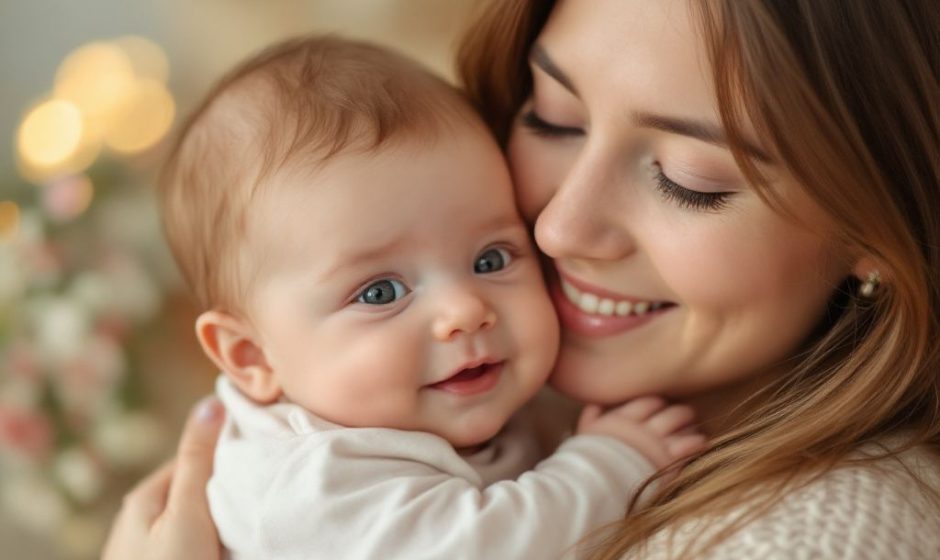Hey there! So, you’ve just had a baby—congrats! Now, if you’re anything like I was after giving birth, you might be wondering what’s going on with your body and mind. Yep, we’re going to dive into that whirlwind known as hormones after pregnancy. Trust me, it’s a ride, but you’re not alone on this journey.
What’s Up With Hormones After Pregnancy?
First off, let’s talk about why your body feels like it’s running a marathon when all you’ve been doing (aside from, you know, birthing a human) is trying to figure out whether it’s night or day. Hormones are to blame, my friend. During pregnancy, your body was flooded with hormones like estrogen and progesterone to keep your baby safe and snug. After delivery, your hormone levels plummet, and this sudden drop can make you feel like you’re on an emotional tilt-a-whirl.
The Hormone Shift
During those nine months, your hormone levels are like a well-choreographed symphony. Estrogen and progesterone prepare the body for childbirth, while others like oxytocin take center stage to spark labor and delivery. Postpartum, the decline in these hormone levels is abrupt and can wreak a bit of havoc—physically and emotionally.
- Estrogen and Progesterone: These two take a nosedive after delivery, which can lead to symptoms like mood swings. They are crucial for maintaining pregnancy and helping your body recover afterward.
- Prolactin: This one revs up for breastfeeding, stimulating milk production. It shifts focus from supporting pregnancy to nurturing your newborn.
- Oxytocin: Often called the “love hormone.” It helps with bonding and breastfeeding but also influences emotions.
- Cortisol and Thyroid Hormones: These can fluctuate, affecting stress levels and energy.
Imagine the chaos when these levels change rapidly, right? Your body is adjusting, but so is your mind.
The Emotional Wave

Now, not everyone talks about this, but it’s super common to feel like “I’m a parent! Shouldn’t I feel ecstatic all the time?” Seriously, postpartum emotions are all over the place. Women can experience baby blues—those moments of sudden crying and unexplained sadness—or more severe postpartum depression. It’s not just you’re overwhelmed; it’s those hormones after pregnancy doing a real number on you.
Why Am I Feeling This Way?
Let’s break it down. You’ve got an adorable, squirmy little human in your arms, yet one minute you’re smiling, the next you’re in tears. It’s all connected to the hormone dance. Around 70% to 80% of new mothers experience mood swings and weepy spells in the first few weeks. We call it the “baby blues,” a minor, natural cause of all the stuff going on internally.
The Baby Blues vs. Postpartum Depression
- Baby Blues: These hit pretty quickly within the first few weeks postpartum, usually clearing up on their own in a few days to two weeks. It’s kind of like hormones withdrawing quickly and vehemently after keeping you protected.
- Postpartum Depression (PPD): If your feelings are more intense and last longer than the baby blues, or show up anywhere from one to six months after childbirth, it might be more than just hormones. We’re talking fatigue, severe mood swings, and even withdrawal from friends and family. It’s important to chat with a healthcare professional if you suspect PPD—even if you’re unsure. Better to have those conversations early on.
Taking Care of Yourself
Navigating hormones after pregnancy isn’t about feeling perfectly balanced but finding what helps you steady the ship. Here’s some food for thought about handling the haze.
Rest When You Can

Sleep deprivation is no joke. Easier said than done with a newborn, I know, I know—but it’s key. Aim to rest when the baby sleeps. Seriously, naps can be life-changing during this stage. And don’t fight for a perfect schedule immediately. Flexibility will be your best partner here.
Nourishment for You
Your body needs fuel to recover. Balanced meals rich in proteins, carbs, healthy fats, and loads of greens help stabilize mood and energy. Trust me, even on days when it’s coffee and toast keeping you functional, decide how to add a mini salad or some vibrant veggies. Your hormones (and brain!) will appreciate it.
Exercise and Fresh Air
Brief daily walks with the pram or some simple postpartum yoga moves can increase endorphins and improve mood. Even ten minutes can make a difference. It’s about subtle movement that brings a tiny spark back into your day.
Ask for and Accept Help
Often, pride convinces us we’re superheroes and should manage all aspects of care on our own. Nope! Let people in your circle provide meals, care packages, hold the baby while you breathe deeply—whatever you need. The support is available; receiving it requires bravery.
Connect With Your Emotions

Journaling, talking to your partner or support group, or seeking guidance from a counselor offers relief. Don’t become strangers with your own emotions. Confronting them helps reduce the overwhelming feeling they bring when left unchecked.
Seeking Professional Help
If you ever feel hormones and mood disruptions severely affecting your quality of life or ability to bond with your baby, it’s time to bring in the pros. A simple conversation with your healthcare provider can jumpstart necessary interventions like therapy or medication. No stigma, no shame—period.
Bonding Moments with Baby
Let’s talk goodness. Hormones after pregnancy are also those magical connectors between you and your little one. Nursing releases oxytocin, bringing you pleasure while engaging with your baby.
How to Enhance Bonding:
- Skin-to-Skin Contact: Not just right after birth. Maintain this beautiful practice for weeks or months—it ignites oxytocin.
- Eye Contact and Talking: Your voice is soothing, while eye contact develops security.
- Rituals and Routine: Familiarity breeds comfort for both of you.
Parenting is no small feat where hormones do a funky waltz making things unsteady. Still, by recognizing subtleties, initiating care strategies, and knowing when to ask for help, this will eventually empower you.
Maybe it now seems like another guide lost in sea of suggestions yet remember, hats off! You’re doing plenty as a capable parent, equipped with hormone rollercoasters to boot. Just remember: you’re not marooned on this island. Reaching out, embracing those baby socks cuddles, acknowledging each victory is your core strength. You’ve got this. It’s all a phase—it too shall ride the horizon into kinder days.
Frequently Asked Questions
What are the benefits of using a hair mask in my hair care routine?
Using a hair mask can provide several benefits, including hydration, smoothing, strengthening, curl definition, heat protection, and damage repair. Hair masks infuse the hair with moisture, help coat the hair shaft to seal split ends, reduce breakage, and protect the hair from heat styling and environmental damage[1][4].
What ingredients should I look for in a hair mask?
Effective hair masks often include ingredients such as coconut oil, argan oil, shea butter, honey, avocado oil, green tea, and coconut water. These ingredients provide nourishment, moisturize, and protect the hair, offering benefits like softening, moisturizing, and protecting against damage[2][5].
How often should I use a hair mask in my routine?
You should use a hair mask whenever your hair feels dry, unmanageable, or in need of intense hydration. This can vary depending on your hair type and needs, but generally, using a hair mask once or twice a week can help maintain healthy and moisturized hair[1][4].
How do I apply a hair mask for the best results?
To apply a hair mask effectively, shampoo your hair first, then apply the mask, focusing especially on the ends where hair tends to be the most damaged. Leave the mask on for anywhere from 10 minutes to overnight, depending on the type of mask and your hair’s needs[1][4].
References



